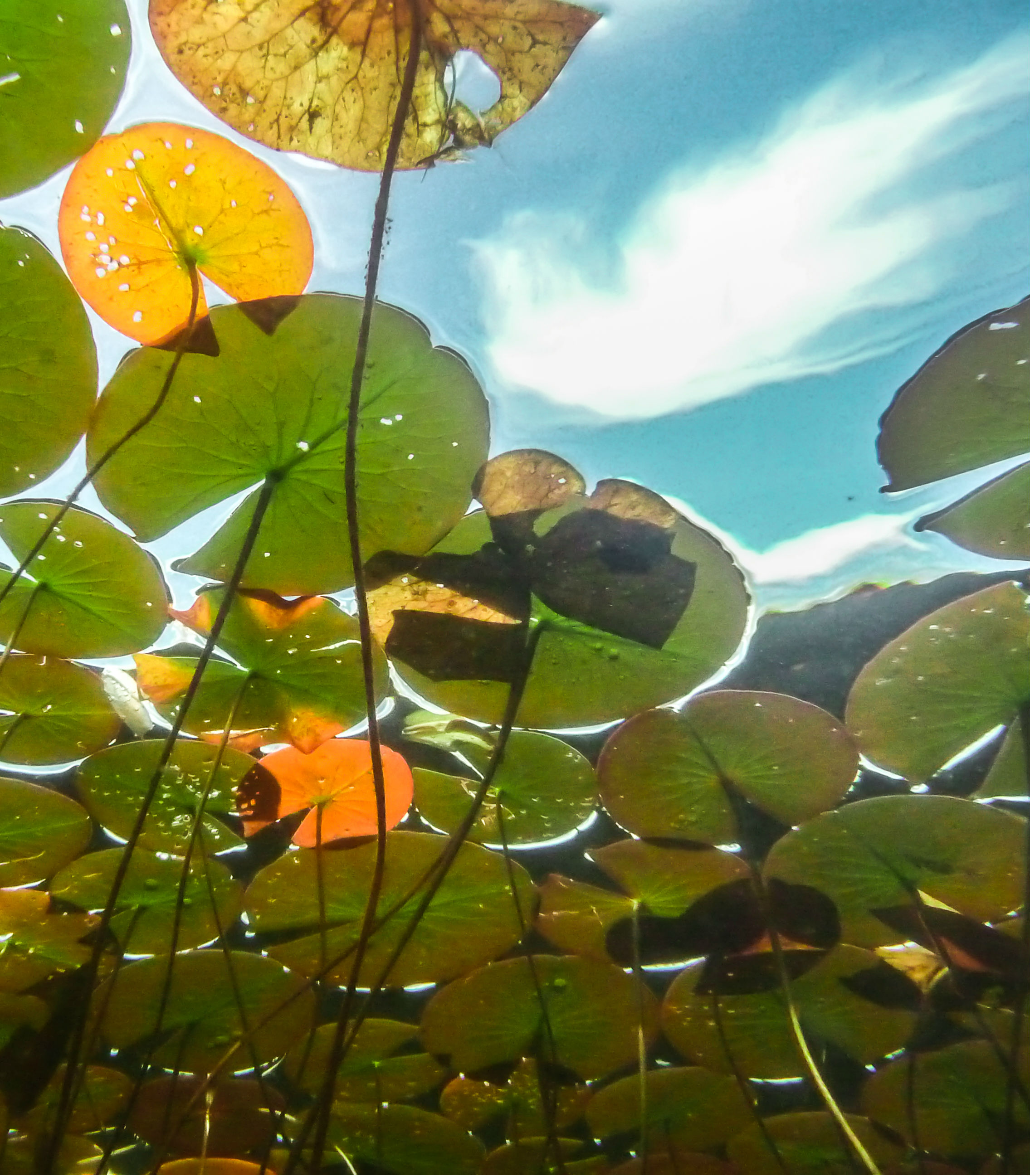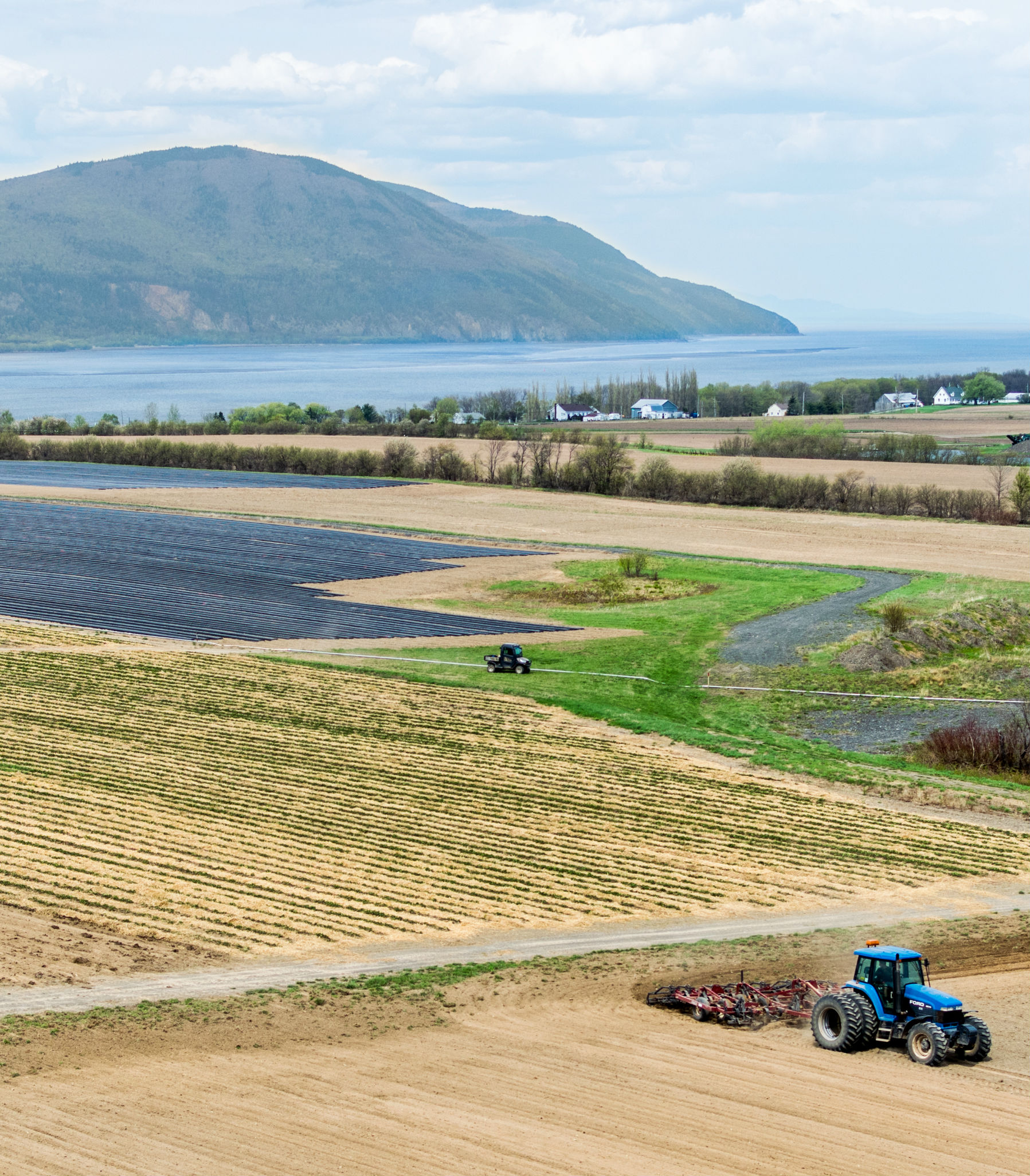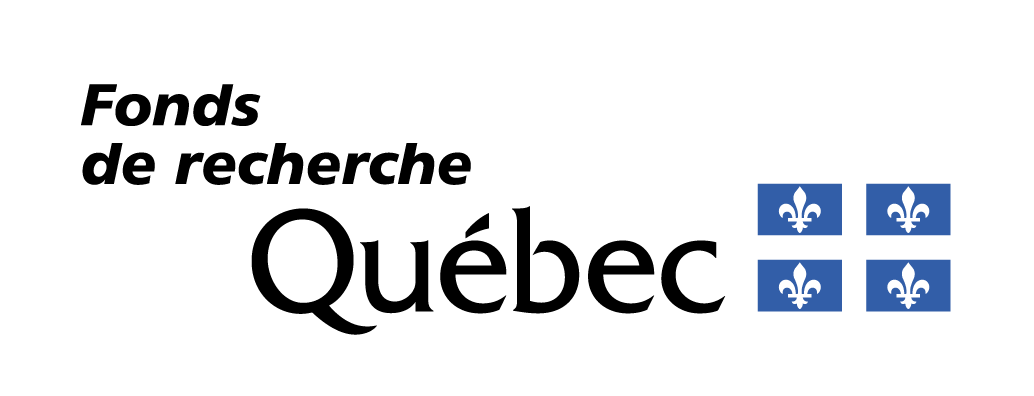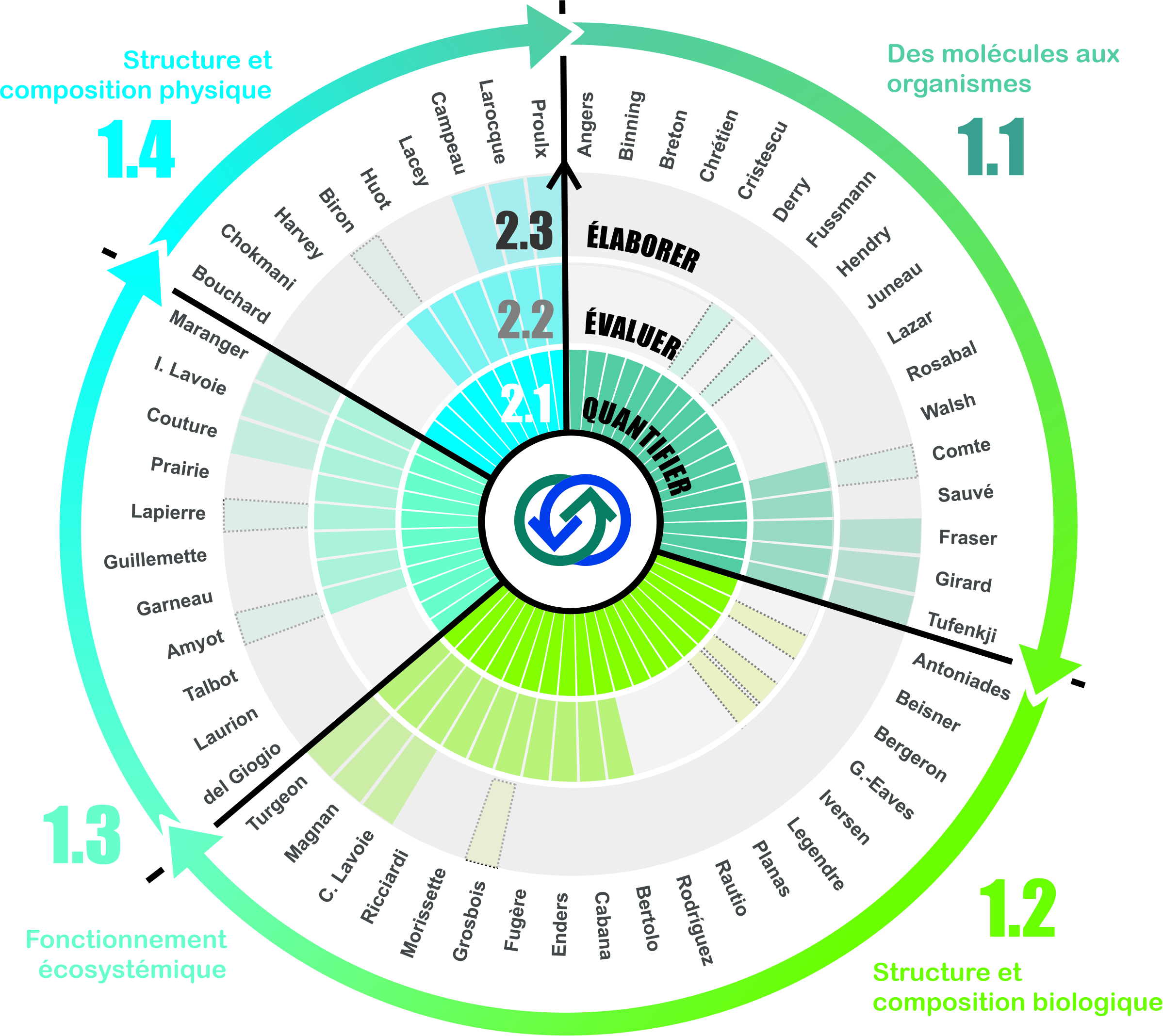GRIL Research Axes
Axis 1. Multiscale structure and functioning of aquatic ecosystems
The four themes within axis 1 align along a gradient of organisation that reflects the research of GRIL members, including crucial cross-scale interactions (e.g. what are the impacts of climate change on the ecophysiology and evolution of freshwater communities?; how do these changes affect biogeochemical cycles?)
Theme 1.1- From molecules to organisms (Sophie Breton)
This theme develops and uses an arsenal of cutting-edge approaches to quantify invisible freshwater biodiversity (e.g. eDNA for cryptic species) and to understand and predict evolutionary and ecophysiological responses from uni- and multicellular organisms.
Theme 1.2- Biological structure and composition (Beatrix Beisner)
This theme addresses the drivers of freshwater biodiversity and trophic interactions, including species that are threatened, invasive or of commercial interest.
Theme 1.3- Ecosystem functioning (François Guillemette)
This theme focuses on the fluxes of matter, energy and contaminants across the atmospheric, terrestrial and aquatic pools, emphasizing the growing, but underappreciated role of freshwater ecosystems in global cycles.
Theme 1.4- Physical structure and composition of catchments (Pascale Biron)
This theme considers how land use affects watersheds and their hydrographic networks, determining water flow, transport of elements, and habitat for organisms, thus completing the loop of Axis 1.

This figure (which will soon be translated into English) illustrates how GRIL members integrate the themes of Axis 1, constituting a solid core of complementary expertise (illustrated by the GRIL logo at the centre of the figure). Building on this collective expertise, we aspire to expand our contributions within Axis 2, bridging knowledge to solutions
Axis 2 – From knowledge to solutions: Quantifying, predicting and acting from local to global scales, for the future of freshwater ecosystems
Building on comparative, experimental, modelling and social innovation approaches, Axis 2 illustrates how our research tackles modern environmental challenges. The common mission of GRIL via this axis is to:
Theme 2.1 – Quantify the effects of multiple environmental stressors and global change, such as emerging contaminants, eutrophication, human hydrological alterations and climate change, based on the themes from Axis 1 (Irene Gregory-Eaves et Paul del Giorgio);
Theme 2.2 – Evaluate strategies for attenuation, restoration and adaptation for freshwater communities and ecosystems (Katrine Turgeon et Marc Amyot);
Theme 2.3 – Elaborate nature-based solutions and decision-making tools based on the best available science using co-creation processes in conjunction with knowledge users (Roxane Maranger).

Updated in February 2025
GRIL is an FRQ-funded strategic cluster

